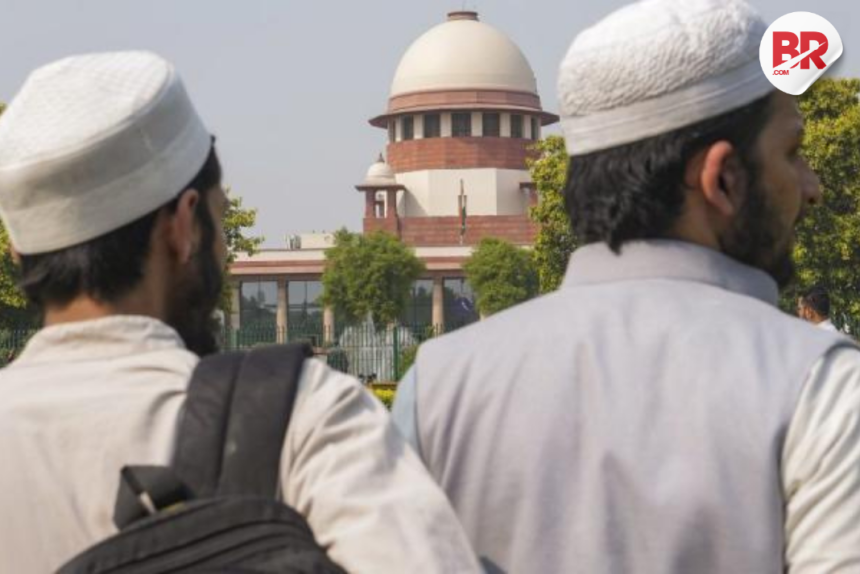
The Supreme Court of India is currently hearing a crucial case that could redefine the management of Waqf properties in the country. The Waqf Law governs the administration of properties donated for religious, charitable, or pious purposes under Islamic law. With concerns raised about potential overreach, the Court’s scrutiny centers on several key provisions that could have wide-reaching implications.
What Is Waqf Law?
A Waqf is an Islamic endowment of property, typically land or buildings, set aside for religious or charitable purposes. Once a property is designated as Waqf, it is irrevocably dedicated to Allah, meaning it can’t be sold, inherited, or transferred. The Waqf Law was enacted to ensure these properties are managed in a way that serves the community and upholds the intent of the donor.

Why the Supreme Court’s Hearing Matters
The case at hand is scrutinizing certain provisions of the Waqf Act, especially those that grant broad powers to Waqf Boards. These boards are responsible for determining whether a property qualifies as Waqf. Critics argue that the law’s expansive definitions and powers could infringe on the property rights of individuals, including non-Muslims whose land might be declared Waqf property.
The court, led by Chief Justice Sanjiv Khanna, along with Justices Sanjay Kumar and KV Viswanathan, is tasked with addressing these concerns. The outcome of this case could reshape the future of property rights in India and how religious laws intersect with individual freedoms.
Also Read: Religious Land Grab or Legal Oversight? Daya Singh’s Bold Fight Against the Waqf Act
Three Key Provisions Under Scrutiny
Several provisions of the Waqf Act have drawn intense scrutiny:
- Definition of Waqf Property: The law’s broad definition of what constitutes Waqf property has raised alarms. Some argue that it leaves too much room for interpretation, which could lead to the wrongful declaration of non-Waqf properties as religious endowments. This could create disputes and threaten individual property rights.
- Powers of the Waqf Board: The Waqf Board has sweeping powers to investigate, determine, and register properties as Waqf. While the law aims to protect religious endowments, critics worry that the board’s powers are unchecked and can be misused.
- Tribunal System: The Waqf Act mandates the establishment of tribunals to resolve disputes related to Waqf properties. However, questions have arisen about the effectiveness and impartiality of these tribunals, with many wondering if they offer adequate protection for property owners.
The Concerns: Are Property Rights at Risk?
One of the main concerns is that the Waqf Law might allow properties that are not genuinely part of Waqf to be claimed as such. Imagine owning a piece of land for generations, only to have it declared Waqf property based on vague or historical claims.
For example, if a private landowner’s property is linked to a religious structure from centuries ago, the Waqf Board could claim it as Waqf property. This could create serious legal and financial challenges for the landowner, even if the current ownership is entirely unrelated to the religious endowment.
The concerns revolve around the potential misuse of these powers, where individuals or organizations not affiliated with the Muslim community could lose their property rights due to broad and ambiguous definitions.
Also Read: Is the Waqf Amendment Act 2025 a Threat to Religious Freedom? Supreme Court to Decide
The Supreme Court’s Role in Ensuring Justice
The Supreme Court’s role in this matter is vital. Its decision will help balance the need to protect religious endowments with the need to uphold individual property rights. The court must ensure that the Waqf Law is implemented fairly, protecting the rights of all citizens, regardless of their religion.
The court will also examine whether the current framework allows for enough checks and balances to prevent misuse of the Waqf Act. If the provisions are found to be too expansive or prone to abuse, the court may suggest modifications to ensure that the law serves its intended purpose without undermining fundamental rights.
Why Should You Care?
You might wonder, “Why does this matter to me?” While the Waqf Law primarily deals with religious properties, its implications go far beyond religious communities. This case highlights the delicate balance between religious laws and property rights.
It underscores the importance of safeguarding the rights of all citizens in a diverse nation like India. The final verdict will have a lasting impact on property rights and the relationship between religion and the state in India.
Ultimately, this case will serve as a precedent for how religious laws are interpreted in relation to individual rights, making it a matter of public importance that extends far beyond the Muslim community.
Also Read: Waqf Law Faces Supreme Court Test from Today: BJP States Support the Act | 10 Key Points Explained












